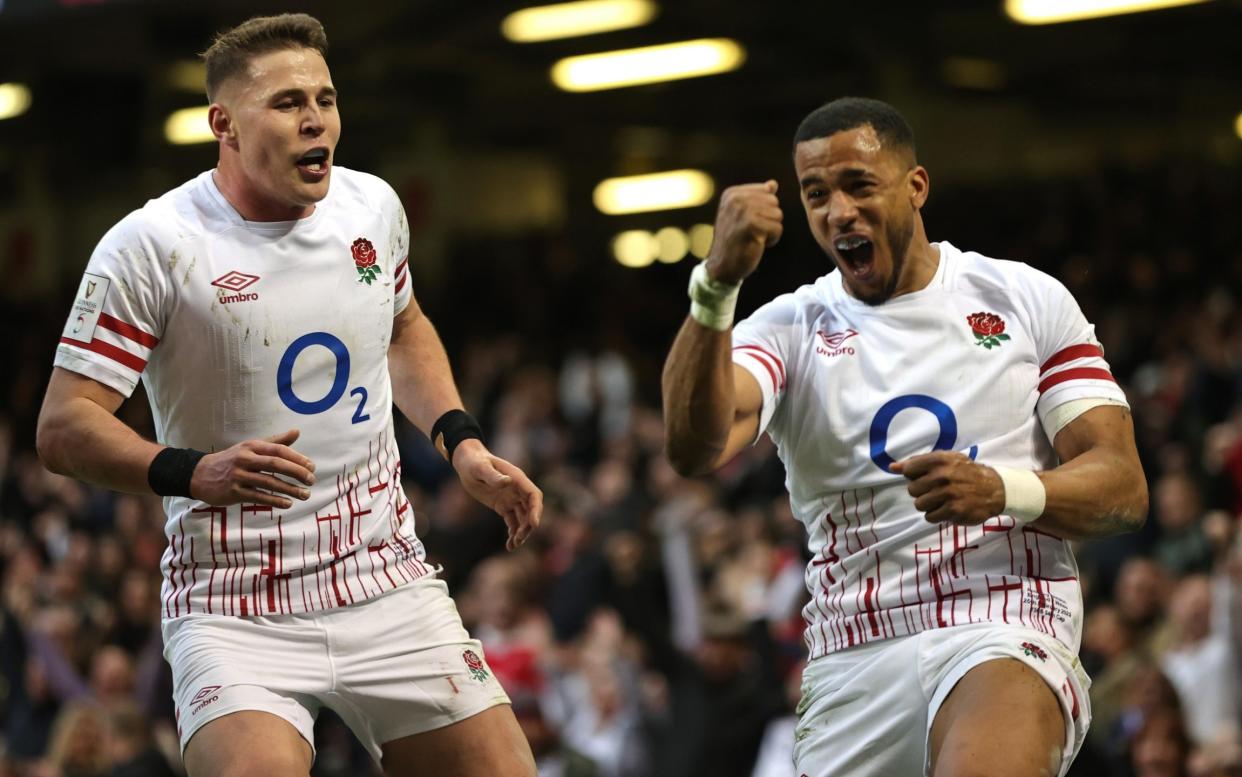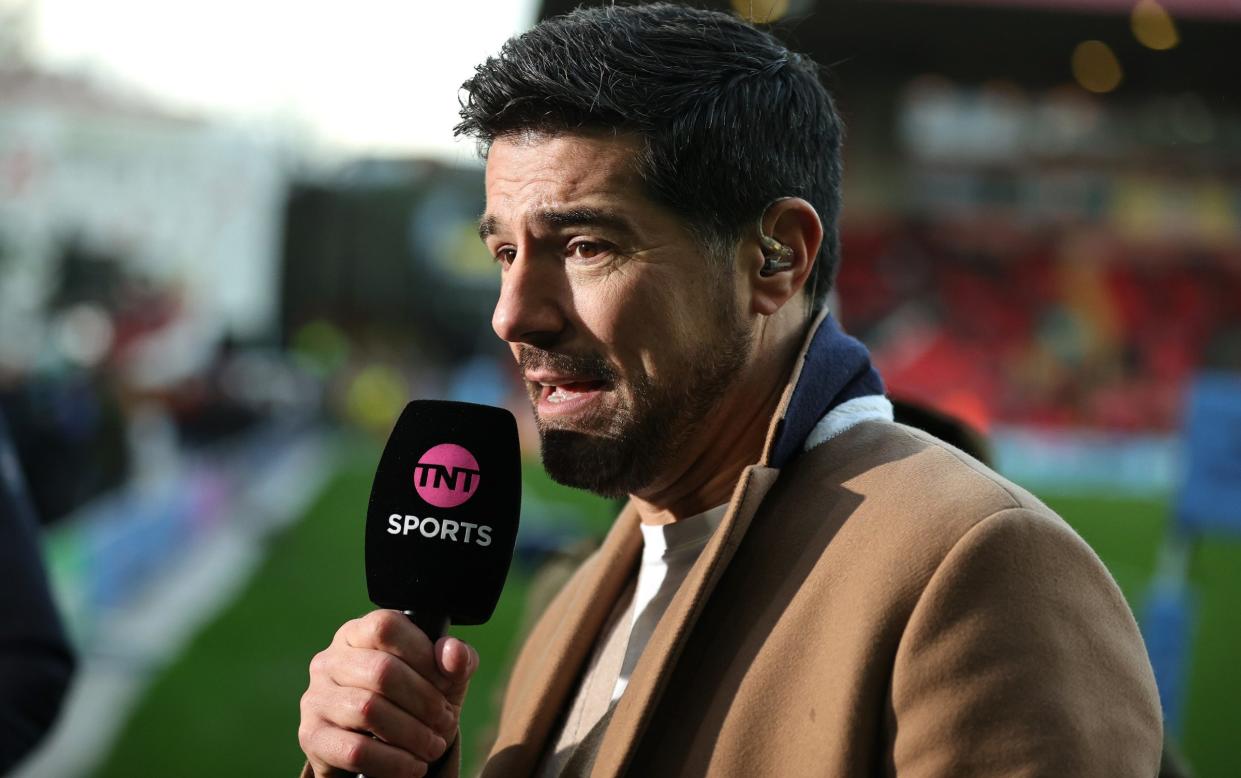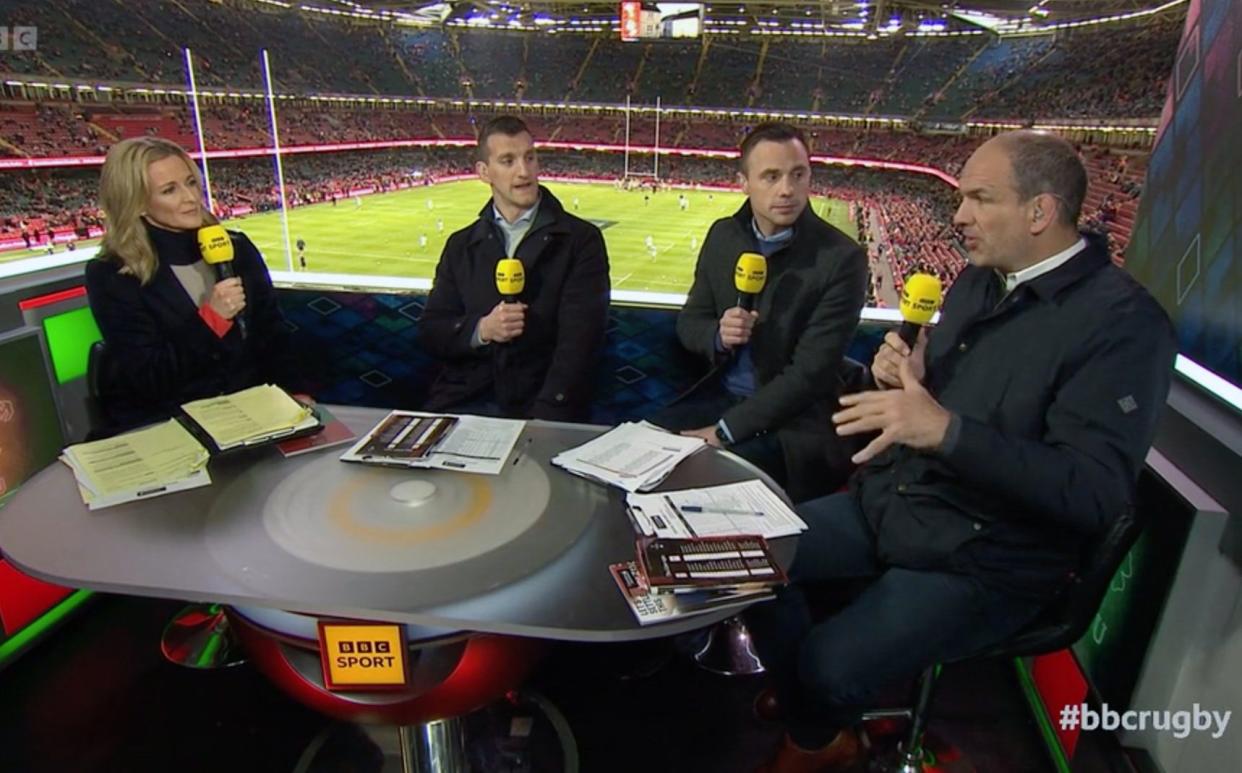
It is not a matter of public record quite how much money CVC Capital Partners generated from its 10-year stewardship from Formula 1. Safe to say it was in the billions. So when Nick Clarry, head of sport at the private equity firm, tells Telegraph Sport that it will make its investment in rugby union succeed “no matter how long that takes”, those words carry significant heft.
In part one of our special report, we looked at the significant challenges that CVC has faced since it announced its purchase of a stake in Premiership Rugby just over five years ago. Now we will look at what comes next, its vision for growing rugby and what that will mean for the sport.
‘I wish their elbows were a bit sharper’
A lot of low-hanging fruit is already being plucked around marketing, sponsorship and digital media. The juiciest apple of all, however, remains the broadcasting contracts. When Clarry refers to rugby being “undervalued” this would have been at the forefront of his mind.
A report by Enders Analysis, for instance, shows that Premiership Rugby is one of the best value rights packages in terms of the amount of viewers it attracts versus the cost of those rights at around £110 million over three years. The rights package for the United Rugby Championship and the Six Nations are viewed in a similar light.
This might be great for the individual broadcaster such as TNT Sports but it is obviously damaging for the clubs and unions and it also short changes supporters, who will need multiple subscriptions if they want to watch rugby across different leagues. The leagues have not helped themselves in this regard by undercutting each other in negotiations with broadcasters.

Under CVC, rugby will no longer be divided and conquered. Instead, the commercial operations will be brought together under one umbrella in much the same way that the Coca-Cola Company runs Coca-Cola, Sprite and Fanta.
“Post pandemic it is clear that rugby can unlock the true potential of the game at scale, by working together differently,” Clarry said. “For example: Six Nations worked closely with Sanzaar and World Rugby to agree the format for the fantastic new Nations Cup; and Six Nations, PRL, URC and EPCR are increasingly collaborating on commercial opportunities to help grow the game for the benefit of players and fans and grassroots rugby. This will enable the unions and clubs in those competitions to have the benefit of scale and aggregation, rather than fragmentation, providing more resources and capital to invest back into the game at all levels.”
The long-term ambition is to bundle the rights for Premiership, United Rugby Championship and possibly the Champions Cup, Six Nations and the new Nations Championship together in a single package. One broadcaster will, for a hefty premium, get to be the home of rugby. The others will be left with nothing.
This will not be a simple process. The broadcast deals for Premiership Rugby and the Autumn Series are due for renewal this year. The United Rugby Championship and Six Nations follow in 2025. As the former chief executive of the Welsh Rugby Union and current chair of Premiership Rugby, Martyn Phillips can attest to how slowly the wheels of progress turn in rugby. In 2018, he was part of a working group that drew up the concept for the Nations Cup that is still to come into effect. Another project to pool the television rights for the Autumn Series between the unions took four years to get approval from different boards.
Yet it would be a mistake to assume that CVC can simply force through any change it desires. “By CVC having involvement in different rugby properties, it is a force to try to create alignment and a shared vision – do we all agree this would be a good idea, even if it takes 3-5 years?” Phillips said. “They cannot make us do anything. It is still the rugby boards who have to decide.
“CVC are facilitators. If anything I wish their elbows were a bit sharper. You would think they come in and be very aggressive and dominant, but they are not. If they were like that rugby would circle the wagons and it would go nowhere. They are having to be more influencing than they ordinarily might want to be to get things done, which might be quite frustrating for them. I think we are quite hard to work with.”
The end of free to air?
If a broadcaster is to become the home of rugby, it will not be BBC or ITV, who have plainly admitted they cannot afford to renew the current £115 million-a-year deal to show the Six Nations, which expires next year. CVC recognises the importance of the Six Nations’ current reach and the importance of free-to-air in projecting rugby to the wider public. This is why it helped Premiership Rugby negotiate a free-to-air deal for highlights and live matches with ITV.
Even if part of the Six Nations was lost to pay TV, it is likely that at least half of matches remained on terrestrial. This could be a similar arrangement to the one struck in 2012 when BBC and Sky split the rights to Formula 1, although races eventually ended up being exclusively shown by satellite. As a senior Six Nations executive told Telegraph Sport, this is a delicate tightrope on which they are about to tread.
“Our job is to promote and protect rugby union,” the source said. “We have got to strike that balance between revenue and reach, and promotion and exposure. That’s a challenge for all sports. What we are trying to do is maintain the reach and find a way of growing the revenues that then get invested back into the game to ensure we are continuing to be relevant across the country and across the Six Nations as well as to future generations. Without that funding that job becomes basically unachievable and we don’t ever want to see a scenario where that is the case.”

The prospect of losing any part of the Six Nations from free-to-air television is an emotive subject that tends to get MPs pontificating in Parliament, but unless it is added to the list of ‘Crown Jewels’ events that have to be shown on terrestrial then there is little to stop market forces from determining the direction of travel.
While there is an appreciation of the reach of free-to-air – viewership research by Enders Analysis shows the Six Nations trailed only the Wimbledon finals and the Women’s World Cup on a per-match basis – there is also a recognition within the Six Nations it cannot afford to tie itself to the mast of terrestrial television indefinitely.
Linear television is on a five per cent decline trajectory every year, which is even more pronounced among younger generations. For the Six Nations to maintain its relevance, it must expand its scope significantly past its existing platforms.
“The way we look at this going forward is looking at the way people consume sports content, live sports content,” a Six Nations source said. “It is different to how it was in the past. That is one of the key things we need to drive going forward is the ability to put the fan at the heart of the proposition, which rugby has not got a fantastic record of doing since its entry into the professional era. We need to continue to push the boundaries to keep rugby relevant for future generations and for fans who look at it and think this is not for me.”
The big broadcasting bet
In the world of sports broadcasting, football is king. Sky and TNT, formerly BT, have built their empires around showing Premier League and Champions League football respectively. Every other sport comes under the secondary sports market, but some are more valuable than others. Sky pays around £200 million a year for its F1 rights, having renewed its exclusive deal through to 2029. Part of what makes F1 so valuable is that it has a distinct viewership separate to football so if you lose those rights, you lose those subscribers.
CVC’s proposition is that such a market also exists for rugby supporters and a broadcaster will be willing to pay a significant premium for exclusivity for a long-term period. According to Francois Godard, a media analyst at Enders Analysis, this will then create a symbiotic relationship between the broadcaster and the sport, in much the same way that Sky Sports has helped to propel the Premier League to its current stratospheric heights. “You need broadcasters to invest in the sport,” Godard said. “If you have a three-year contract then it is like having a three-year flat rental. Are you going to spend money on the apartment? No. If you have a 12-year contract then you are going to take a lot better care of it.”
If the strategy is a good one, Godard has doubts about which broadcaster will be willing to open its chequebook to be the home of rugby. Warner Bros Discovery, the parent company of TNT which owns the current rights to the Premiership and Champions Cup, is under significant financial pressure globally while Sky Sports has more or less closed its rugby operation, with the exception of its coverage of the Lions.
Meanwhile, potential new players DAZN missed out in the recent auction for Premier League rights which spells bad news for rugby, according to Godard. “I don’t think it is very positive for rugby because the more there is competition between sports channels the higher demand for secondary sports because you want to boost your schedule,” Godard said. “Now there will not be much competition between TNT and Sky Sports, they are complementary, they have deals together, they have cross distribution deals.”
CVC remains confident that if the proposition is strong enough then a broadcaster, whether that is TNT, Sky or a potential player, will be willing to stump up.
‘We are getting to the good part now’
The devastating impact of the pandemic on the rugby economy and its aftereffects, which contributed to the demise of Worcester Warriors, Wasps and London Irish, have set back CVC’s plans by at least two years. Even now, the fruits of many of the initiatives being put in place today, such as Netflix’s Six Nations Full Contact documentary which premiered in London on Monday night, will not be seen immediately. “I would call it lead lag,” Phillips said. “The things we are doing today, we will only see the benefit of in 2-3 years’ time. Most people want instant gratification but that’s impossible because of the length of the contracts. I am confident that the things we are doing today will bring medium-to-long-term benefit. I’d love it to be right now but it won’t be. That’s just reality.”
Perhaps CVC’s greatest achievement is that there is now a real sense that rugby’s stakeholders are finally pulling in the same direction. Even if bodies such as Premiership Rugby, the United Rugby Championship and the Rugby Football Union are not on the same page, they are now at least in adjoining chapters.
“The answer to fragmentation is collaboration,” one high level source said. “Build trust. Build relationships. Build a sense of togetherness.” Another put it more bluntly: “It’s collaborate or die.”
The Premiership remains in a precarious position with its finances, particularly with the repayment of the Covid recovery loans. The painful path to a 10-team league was privately celebrated by many as the optimum long-term solution. Losing another club, however, would be a disaster that could send the whole league toppling like a house of cards.
Clarry, however, is optimistic that rugby has finally turned a corner. As former RFU chief executive Francis Baron said in part one of our report, it is always worth remembering that private equity companies are in the business of making a profit – which should hardly be considered a bad thing in a capitalistic society – yet there is a point of pride in CVC’s investment in rugby. That was the starting point of a huge expansion of CVC’s sporting empire as it has taken stakes in La Liga and Ligue Un, the Spanish and French football leagues, as well as the Women’s Tennis Association and Gujarat Titans, the IPL franchise.
Rugby was their entry point to that empire and having weathered the storms of the past five years, Clarry is determined to see the project through.
“We don’t regret our investment in rugby,because we are getting to the good part now, where the efforts of everyone in the game has created positive momentum – and it is about delivering strong results,” Clarry said. “But it has been harder work than we expected when we started in 2019 because of Covid, Worcester and Wasps, fragmentation, cost of living crisis etc. Why does CVC credibly love rugby and not regret it? One, we are going to succeed by working together, no matter how long that takes – and we are going to grow the game and audiences to deliver higher revenues to reinvest back into the sport at all levels. Two, everyone in rugby now understands the challenges, and they want to reach their full potential, and we are all fully aligned on the objectives. Three, the transformation of rugby has been one of the catalysts for other sports in the world, to realise the opportunities available to them through commercial partnership deals, with partners like CVC.”
Article courtesy of
Source link